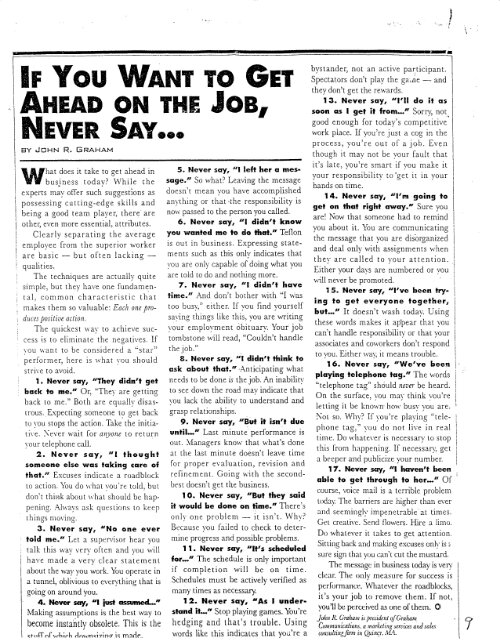Cultivate (your better self). What’s the point of “education” anyway? One point of view says: t the point of education is greater productivity; you study so you can be a faithful, loyal, unquestioning “employee” with the commoditized, routinized analytical skills to get the (yawn, shrug, eye-roll) neo-Fordist job done. I’d argue the reverse is true: the point of productivity is education — the “output” of authentically thicker value, greater social benefit, is a process that culminates in the act of being a wholer person. I’d argue, on reflection, what society really might have is a shortage of living, breathing well-rounded humans; with a moral compass, an ethical core, a cosmopolitan sensibility, and a long view born of historicism. What we’ve got plenty of are wannabe-bankers whose idea of a good life goes about as far as grabbing for the nearest, biggest bonus — what we’ve got less of are well-rounded people with the courage, wisdom, and capacities to nurture and sustain a society, polity, and economy that blossom. So put immediate gratification to one side and cultivate your higher sensibilities; learn the arts of nuance, subtlety, humility, and grace. I don’t mean you have to spend every evening at the opera — but I do mean you probably have to do better than thinking Lil Wayne is the apex of human accomplishment. Let’s get real: without a refined, honed, expansive sense of what great accomplishment is, you stand little to no chance of ever pushing past its boundaries yourself. Create (something dangerous). Mediocrity isn’t a quest to be pursued — but a derelict deathtrap to be detonated into oblivion. Hence, I’m firmly of the belief that your youth should be spent pursuing your passion — not just slightly, tremulously, haltingly, but unrelentingly, with a vengeance, to the max and then beyond. So dream laughably big — and then take an absurdly huge risk or two. Bet the farm before it’s a ranch, a small town, and an overly comfy place to hang your saddle and your hat. Create something: don’t just be an “employee,” a “manager,” or any other kind of mere mechanic of the present. Be a builder, a creator, an architect of the future. It doesn’t matter whether it’s a sonata, a book, a startup, a financial instrument, or a new genre of hairstyles — bring into being something not just fundamentally new, but irrepressibly dangerous to the tired, plodding powers that be. Think about it this way: if your quest is mediocrity, then sure, master the skills of shuffling Powerpoint decks, glad-handing beancounters, and making the numbers; but if your quest, on the other hand, is something resembling excellence, then the meta-skills of toppling the status quo — ambition, intention, rebellion, perseverance, humanity, empathy — are going to count for more, and the sooner you get started, the better off you’ll be. Forgive (and fail). I hate the slightly dehumanizing, mechanistic words “high achievers.” Because the truth is that the mark of someone reaching for the stars isn’t “achievement” — but failure, of the kind that makes the hair on the back of your neck snap up. If you’re going to live a life that matters, I’d bet that sometimes in your 20s, you’re going to fail — spectacularly, in Technicolor. You might launch a successful, disruptive venture — only to see your marriage fall apart. You might meet the perfect life partner — only to discover your career is flaming out. Or you might be on top of the world, financially — only to discover you’ve never felt emptier. These are all failures, of the “omg” variety — and they’re reliable triggers of a mid-to-late-twenties-where-the-hell-is-my-smoking-trainwreck-of-a-life-going anyways quandary. So consider this: when you fail, and fail big — forgive. Forgive the people around you. Forgive yourself. Examine the past, but don’t let it imprison you. You can dwell on your failure for years, and turn a trauma into a crisis. Or you can gently remember that mistakes aren’t the end of the world, but the beginning of wisdom — and firmly step forward into possibility. As the great poet Antonio Machado once wrote: “walker, there is no path; the path is made by walking.” Never was this truer than in an era of abject institutional failure, social fracture, and economic meltdown. We know where yesterday’s paths lead — not to a shining city we once called prosperity, but to here; dying metropolises, battered exurbs, mass unemployment, nail-biting fear of the future, plutocracy and protest, the crumbling ruins of empire. So map the horizons of your own journey, and, when the status quo tells you it can’t be done, tell the status quo to go to hell. What’s important is that what you’re doing matters — to yourself, to the people you love, and to something bigger, whether your community, society, or even humanity. Choose fulfillment and passion over “money” and “success.” The latter follow the former — and without the former, the latter are empty. When you’re sorting through your passions, consider what you have the potential to be not merely mediocre, but world-beating, at. And as you refine your choices, consider which are going to matter most in the sense of the greatest good for the greatest number — perhaps for the longest time. Because one world-changing accomplishment that knocks the ball out of that park is likely to give you more satisfaction than a lifetime of designer jeans.

